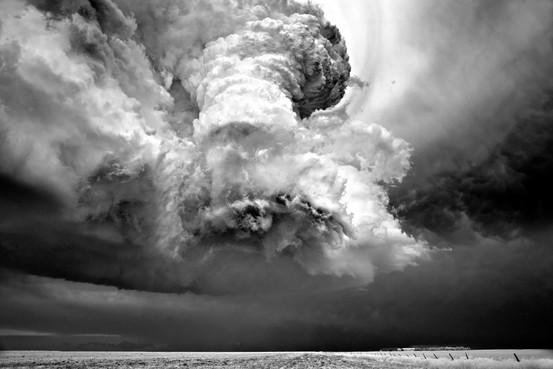The following article covers a variety topics about which I have written in the past including:
-
The current and coming impact of climate change on people around the world.
-
The lack of adequate measures to mitigate the worst impacts of a warming planet.
-
The movement to divest portfolios of fossil fuels.
-
The recognition by business leaders, especially those either currently or formally in the fossil fuel business, that climate change is going to have an impact on their business models.
-
The falling cost of renewable energy.
For a quick review, see the portions highlighted in green. But here’s a quick preview:
“”Concerns about the environmental impacts of coal combustion,” Peabody (Energy Corp.) said Feb. 25, “are resulting in increased regulation of coal combustion in many jurisdictions, unfavorable lending policies by government-backed lending institutions and development banks toward the financing of new overseas coal-fueled power plants and divestment efforts affecting the investment community, which could significantly affect demand for our products or our securities.””
And:
“In June, Mark Moody-Stuart, former chairman of Royal Dutch Shell PLC, said that after years in which energy companies have largely failed to address climate risks, divestment is a “rational” approach.”
Climate change activists use sound, fury and darkness to prepare new anti-fossil fuel campaigning
Benjamin Hulac, E&E reporter
Published: Friday, September 11, 2015
It started with flashing images of protesters calling for humanity to break away from fossil fuel dominance and ended with a soulful rendition of The Beatles’ “Here Comes The Sun,” a musical undertone to match upbeat projections about solar power.
Yet most of the evening event, called “Off and On: The Climate Movement and the Road Through Paris” and hosted by advocacy group 350.org at the Brooklyn Academy of Music, wasn’t consistently so bright and cheerful.
Rather, it was a clarion call to action and fossil fuel divestment filled with speeches, videos, photography and spoken-word and musical performances, collectively more of a display of choir-to-choir preaching on climate threats than a concrete blueprint to dismantle the fossil energy industry.
One 350.org campaigner in Vanuatu, the archipelago nation in the South Pacific, described the impact and aftermath of Cyclone Pam, which struck the country in March, affecting tens of thousands of people (ClimateWire, March 23).
Renuka Saroha, a 350.org coordinator for South Asia, spoke of her love for New Delhi, her hometown, but lamented the public health impacts of carbon pollution.
“Alas, Delhi’s not a safe city anymore,” she said. “I don’t even remember that last time I saw clear blue sky in Delhi.”
Thilmeeza Hussain, founder of climate advocacy group Voice of Women, and a former representative to the United Nations for the Maldives, told the Brooklyn audience the highest point in her country is 6 feet above sea level.
Also in person, Cynthia Ong, founder and executive director of the the group Land Empowerment Animals People (or LEAP) in Borneo, said the knock-on effects of greenhouse gases are killing thousands already and squeezing the lives of millions more. Earlier this year, heat waves killed several thousands in India and Pakistan, and yesterday, “unprecedented” floods in Japan forced about 90,000 people to evacuate, she said. And though California’s drought has persisted and been widely publicized, not all natural crises make world headlines, she said.
“Sometimes, the drama is quieter. Kenya is in year 10 of an epic drought,” she said.
McKibben calls for a ‘freeze on fossil fuel development’
Between songs by Antonique Smith and a spoken-word salvo from Malik Yusef on climate threats — he punctuated his stanzas with lines like “Shoutout Josh Fox, livin’ in a gasland,” “We found a loophole with carbon neutral” and “Fresh and saltwater way outta balance” — Bill McKibben, the author and 350.org co-founder, said the audience cannot rely on international leaders to resolve climate risks.
“We can’t actually count on anyone else,” McKibben said. “We need a de facto freeze” on fossil fuel development, he said.
Political spending by a wealthy few blocks paths toward climate policies, he told the boisterous audience of about 1,200, adding that any agreement that international negotiators might reach at the Paris summit in December will fall far short of what’s needed to stave off catastrophic climate change.
Event organizers laid out a timeline of events leading up to and following the Paris conference, including local climate workshops this fall, global marches in late November and a “mass mobilization” Dec. 12, the day after the Paris talks are scheduled to end. They promised “bold escalation” in April.
“The weekend before the U.N. climate talks begin in Paris, we are going to mobilize mass actions around the world to demand that politicians keep fossil fuels in the ground,” said 350.org co-founder and Executive Director May Boeve. The plan is to have hundreds of thousands of marchers in the Paris streets during the talks and gather as many fossil fuel divestment pledges as possible, she said.
“We will be working hard to make sure that the talks are seen as a referendum on the future of the fossil fuel industry and that the treaty sends a clear signal,” Boeve said.
Boeve’s group has spearheaded the international push to persuade institutional, and individual, investors to sell coal, oil and natural gas holdings. About 400 institutions, specifically pension funds, religious organizations, colleges and universities and foundations, among others, have either partially or fully divested from fossil fuels, according to 350.org.
Divestment draws financial blood
While the financial success of divesting, which the United Nations has endorsed, depends heavily on when and how investors pull their money from coal, oil or gas stocks, some traditional fossil energy business leaders are taking the movement seriously.
In June, Mark Moody-Stuart, former chairman of Royal Dutch Shell PLC, said that after years in which energy companies have largely failed to address climate risks, divestment is a “rational” approach.
“Even the seemingly less constructive and somewhat quixotic campaign for endowments and pension funds to divest themselves of all fossil fuel holdings is not without some rationale,” said Moody-Stuart, according to a copy of his remarks. “Divestment is an entirely rational market approach if you think that there are better uses for your funds.”
Coal giant Peabody Energy Corp. warned investors in a February financial filing that divestment could cut off credit lines and hamper the company’s stock price.
“Concerns about the environmental impacts of coal combustion,” Peabody said Feb. 25, “are resulting in increased regulation of coal combustion in many jurisdictions, unfavorable lending policies by government-backed lending institutions and development banks toward the financing of new overseas coal-fueled power plants and divestment efforts affecting the investment community, which could significantly affect demand for our products or our securities.”
The Independent Petroleum Association of America, an oil and gas trade association, said in astudy released Tuesday that divestment could cost U.S. universities tens of millions in lost returns.
In Brooklyn last night, no one mentioned lost returns. Toward the end of the show, Tomás Insua of the Global Catholic Climate Movement added his voice to the list of those urging action. “The time has come to turn this industry off,” he said, before turning around, walking across the stage and unplugging the overhead lights, plunging the room into darkness and applause.
“So now,” McKibben’s voice rang out in the darkness to titters from the gallery, “Now we’re where they always said we would be without the fossil fuel industry.”
“We’re sitting in the dark. This is one of the reasons that it’s been hard to get people fully engaged in the climate fight,” he said. Proving the threat of an increasingly warm world, he said, has been easy. “But it was hard to suggest an alternative, and it’s the attitude that the fossil fuel industry has tried hard to drill into us — that without them, we would be back in the Dark Ages.”
The price of a solar panel has dropped about 75 percent in the last six years, and solar power, in most of the world, is now the cheapest way to generate electricity, McKibben said.
Twitter: @benhulac Email: bhulac@eenews.net



